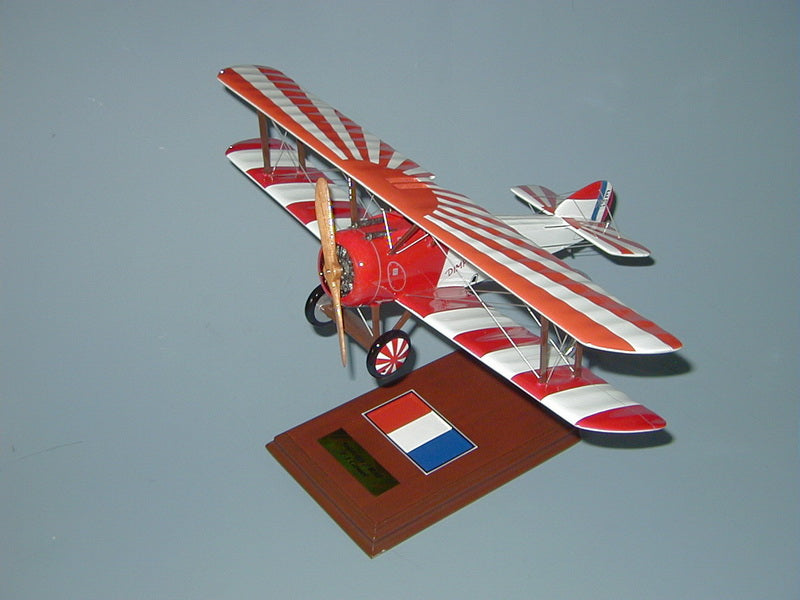Sopwith Camel airplane model. An agile, highly maneuverable biplane, the Sopwith Camel accounted for more aerial victories than any other Allied aircraft during World War I. Credited with destroying 1,294 enemy aircraft, it was called the Camel due to the humped fairing over its twin machine guns. Much like a real camel, this aircraft could turn and bite you. Noted for its tendency to kill inexperienced flyers, many pilots feared its vicious spin characteristics. Until sufficient speed was developed during takeoff, Camel pilots maintained full right rudder to counteract the torque the rotary engine. Failure to do so often resulted in a ground loop with the Camel crashing on its starboard wingtip. During World War I, 413 pilots died in combat and 385 pilots died from non-combat related causes while flying the Sopwith Camel.
Mahogany Wood. Scale: 1/20. Wingspan 17 inches, Length 11 1/4 inches.


